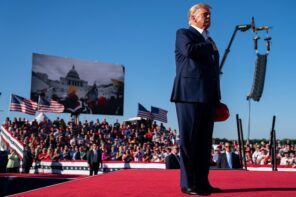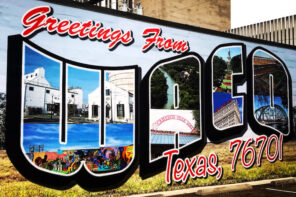The debate continues to deepen over Graeme Wood’s Atlantic cover story on ISIS: Murtaza Hussain has noted how Wood ignores debates among Islamic intellectuals, Juan Cole argues for the fringe status of the group, likening them to Kentucky snake handlers, and, most recently, Daniel Haqiqatjou and Yasir Qadhi have argued for the need to put the Atlantic article in the wider context of anti-Muslim discourse produced after 9/11.
Wood’s fundamental point is that the U.S. has misunderstood the ‘Islamic State’ because it ignores its ideology—one rooted in a specific implementation of Islamic texts. Wood relies, as he explains, on the work of an expert scholar:
Muslims who call the Islamic State un-Islamic are typically, as the Princeton scholar Bernard Haykel, the leading expert on the group’s theology, told me, “embarrassed and politically correct, with a cotton-candy view of their own religion” that neglects “what their religion has historically and legally required.” Many denials of the Islamic State’s religious nature, he said, are rooted in an “interfaith-Christian-nonsense tradition.”
Via Haykel, Wood renders himself an objective critic of ISIS—while his opponents are nonsense-blabbering feel-good liberals. Even Muslim critiques of the ‘Islamic State’ are not authentic, but rather Christian apologies.
For Wood, what makes the ‘Islamic State’ Islamic is the invocation of Koranic verses. He reports that ISIS supporters “often speak in codes and allusions that sound odd or old-fashioned to non-Muslims, but refer to specific traditions and texts of early Islam,” and that they, “spoke with an academic precision that put me in mind of a good graduate seminar.” These people speak with authority, so they must be authoritative. So the logic goes.
In the article, Wood relies on the familiar Protestant notion that literalist reading of original scripture is a mark of authenticity—true Islam can be accessed authentically sola scriptura, by scripture alone. My point of course, is not simply that Wood reads as a Protestant. After all, there are plenty of Protestants who read well. What I want to say is that Wood uses the Protestant framework that says that a literalist reading is the best way to read a religious text… in order to talk about a non-Protestant tradition. (This ideology of reading was initially developed in the Reformation, but much more significantly developed in America in the 1920s.) Wood doesn’t use Islamic (or even sociological) tools to judge how Islamic the ‘Islamic State’ is, rather, he uses American Protestant ones to judge their authenticity, thereby ignoring the very real ongoing process that many Muslims are currently engaging in of delegitimizing the ‘Islamic State.’ In Wood’s judgement it doesn’t matter what Muslims say, as long as the ‘Islamic State’ continues to quote the original scripture, they will be legitimate in his eyes.
Wood repeatedly refers to the ‘Islamic State’ as medieval, a term that links his perception of the ancient status of the group with its violent behavior. (As in that famous declaration in Pulp Fiction: “I’ma get medieval on your ass.”) Wood’s use of “medieval” takes the ‘Islamic State’s’ violence and projects it backwards in time, playing into the Protestant conception that authenticity is to be found in appeals to older texts. Wood constructs a large rhetorical apparatus to create this perception: They are opposed to us. They are old, we are modern. They are violent, we are peaceful. They are irrational and apocalyptic, we are rational and restrained. All these oppositions are contained in labeling the ‘Islamic State’ as medieval. (Perhaps we should reframe this binary: They broadcast their torture to the world, we discuss ours behind the close doors of the Senate Intelligence Committee.)
It is certainly important to take the language of the ‘Islamic State’ seriously, and Wood does this. But I would argue that it is just as important to take the language of scholars and journalists in describing the ‘Islamic State’ seriously, as they too have real effects.
Wood’s article has been so controversial precisely because he doesn’t seem to register his own status as a “definer” of discourse. An American Muslim who claims that the ‘Islamic State’ is un-Islamic is drawing boundaries, setting terms. Likewise when President Obama described the ‘Islamic State’ as “not Islamic” it was not necessarily because of a lack of understanding of the group, but because of an awareness of the power of his words to affect the lives of the millions of Muslims in America.
Wood does not acknowledge the power his words have in constructing the “reality” they depict. That is, he is not simply describing the Truth, but helping to construct it. In her essay “Representing Fundamentalism: The Problem of the Repugnant Cultural Other,” Susan Harding has argued that the modernist narrative that erases the voices of those we call “fundamentalists” in turn reinscribes the fundamentalists in a strict binary opposition with modernity. She writes:
Fundamentalists create themselves through their own cultural practices, but not exactly as they please. They are also constituted by modern discursive practices, an apparatus of thought that presents itself in the form of popular “stereotypes,” media “images,” and academic “knowledge”…
Wood likens the ‘Islamic State’ to other ‘death cults’ that are easily recognizable to the average American reader, writing:
Its rise to power is less like the triumph of the Muslim Brotherhood in Egypt (a group whose leaders the Islamic State considers apostates) than like the realization of a dystopian alternate reality in which David Koresh or Jim Jones survived to wield absolute power over not just a few hundred people, but some 8 million.
Scholars of religion like Catherine Wessinger have spilt much ink over the events that lead to the tragic deaths at Jonestown and Waco, Texas. What has become clear in the years since those tragedies is that the true horror of them was avoidable, but only if those in power had both taken the groups’ language seriously and not defined them solely in opposition to us “moderns.”
Language matters, both “theirs” and “ours.”
Note: This article has been updated to reflect further editorial conversation.





